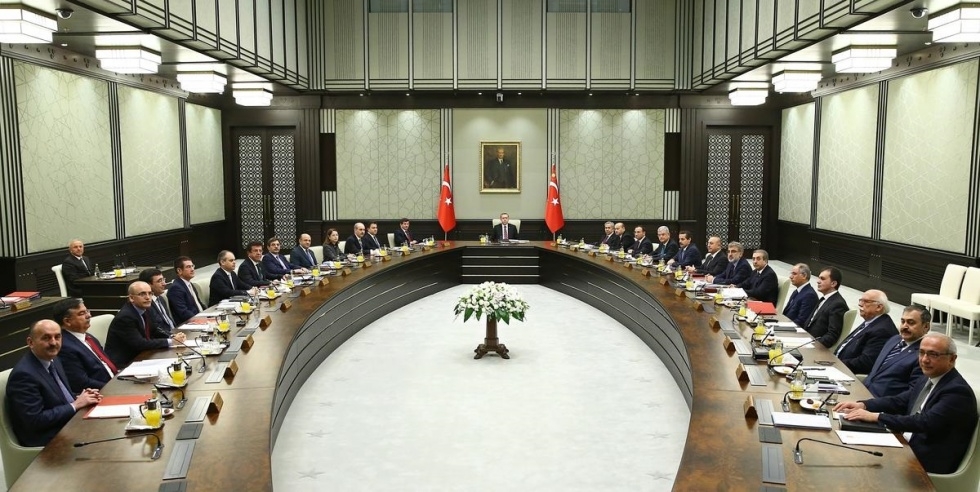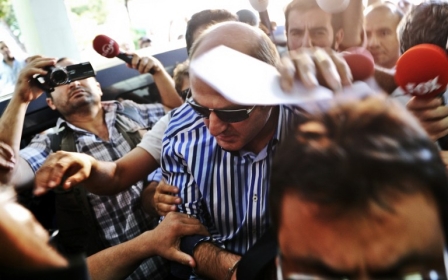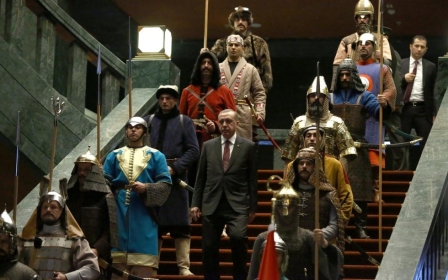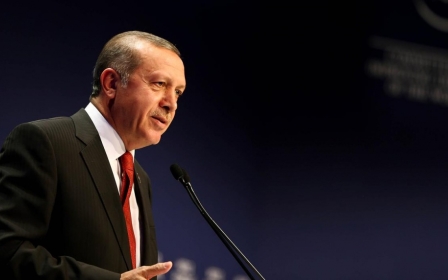Turkey’s AKP left divided over ex-minister corruption vote

Turkey's ruling AKP party was left reeling late on Tuesday, after a parliamentary rebellion saw dozens of AKP lawmakers vote in favour of putting four ex-ministers accused of corruption on trial.
While AKP co-founder President Recep Tayyip Erdogan had pushed for public probes into the 2013 accusations to be dismissed, 48 of his deputies voted against him in one instance, in a rare act of disunity in the otherwise tight-knit party that has governed Turkey for more than a decade.
Parliamentarians who had voted to reject the trial, were quick to lash out at their colleagues, in one instance labelling them “traitors”.
“If the number was merely three or five, it would be okay, but this number cannot be accepted,” Samil Tayyar a party deputy from Turkey’s south eastern region, told Turkish television.
“These [deputies] are traitors among us. It is not casuistry, but a political operation conducted against Erdogan. A network of treachery within us has conducted the operation against Erdogan. They could not achieve their goals, but they attempted an operation.”
Individual votes were taken about whether each of the four former ministers should stand trial, although despite two of the votes coming very close to the wire, the motions were ultimately rejections.
EU Minister Egemen Bagıs, accused of taking 1.5 mn euros worth of bribes from Iranian-Azeri businessman Reza Zarrab, proved the least popular among the AKP deputies, 48 of whom rebelled in an attempt to see him stand trial.
Former Interior Minister Muammer Guler who was widely criticised for failing to explain a rapid rise in his personal finances during his term in office, also lost the confidence of 44 of his former colleagues who voted against him. Former Economy Minister Zafer Caglayan, who was also accused of taking bribes and gifts from Zarrab, also saw 37 AKP lawmakers vote against him.
Ex-Environment Minister Erdogan Bayraktar, however, proved markedly less controversial with only 14 AKP deputies voting to send him to the Supreme Court. While also linked to corruption charges, Bayraktar, repeatedly insisted upon his innocence, and said he did everything with the full knowledge of the party’s top brass, including Erdogan himself.
The 550-seat parliament vote on the fate of the former ministers who were all seen as Erdogan allies, went on late into the night, and was cast by secret ballot.
Prime Minister Ahmet Davutoglu, who also hails from the ruling AKP, was absent during the vote on a trip to Britain. Speaking to reporters in London, he brushed off concerns over a split in the party, although some Turkish media commentators queried why he had chosen not to delay his visit until the sensitive vote.
"Dissenting votes show that we are respecting the legal process," he told Turkish reporters in London. "The AKP did what was legal and ethical,” he added while stressing that there was no pressure from the party leadership for its politicians to toe the party line, instead insisting they were left free to vote their conscience.
Anti-corruption group Transparency International slammed the vote as "taking the culture of political impunity to a dangerous new level”.
"Today's vote will only reinforce the growing global perception that corruption is a major problem in Turkey," Oya Ozarslan, chair of Transparency International Turkey, said in a statement.
The parliamentary spat comes as Erdogan squared off against the country’s central bank for only reducing the country’s interest rate by 50 basis points, a move Erdogan on Wednesday dubbed "insufficient".
"It is not possible for us to find this reduction sufficient. It appears that the central bank did not get its share of the messages delivered," Erdogan told reporters before embarking on a tour of Ethiopia, Somalia and Djibouti.
High interest rates are one of the issues that "hurt me" Erdogan continued, while stressing that the officially independent bank would be reprimanded for taking the "wrong steps".
"This interest [rate] should be lowered so that entrepreneurs can make investments," Erdogan said.
The bank raised rates to 12 percent in January last year in an attempts to prop up the lira after a period of turbulence and to also try and stem inflation which stood at 7.4 percent in December 2014. The interest rate last month stood at 8.7 percent, after falling back from summer highs of around 9 percent.
New MEE newsletter: Jerusalem Dispatch
Sign up to get the latest insights and analysis on Israel-Palestine, alongside Turkey Unpacked and other MEE newsletters
Middle East Eye delivers independent and unrivalled coverage and analysis of the Middle East, North Africa and beyond. To learn more about republishing this content and the associated fees, please fill out this form. More about MEE can be found here.




